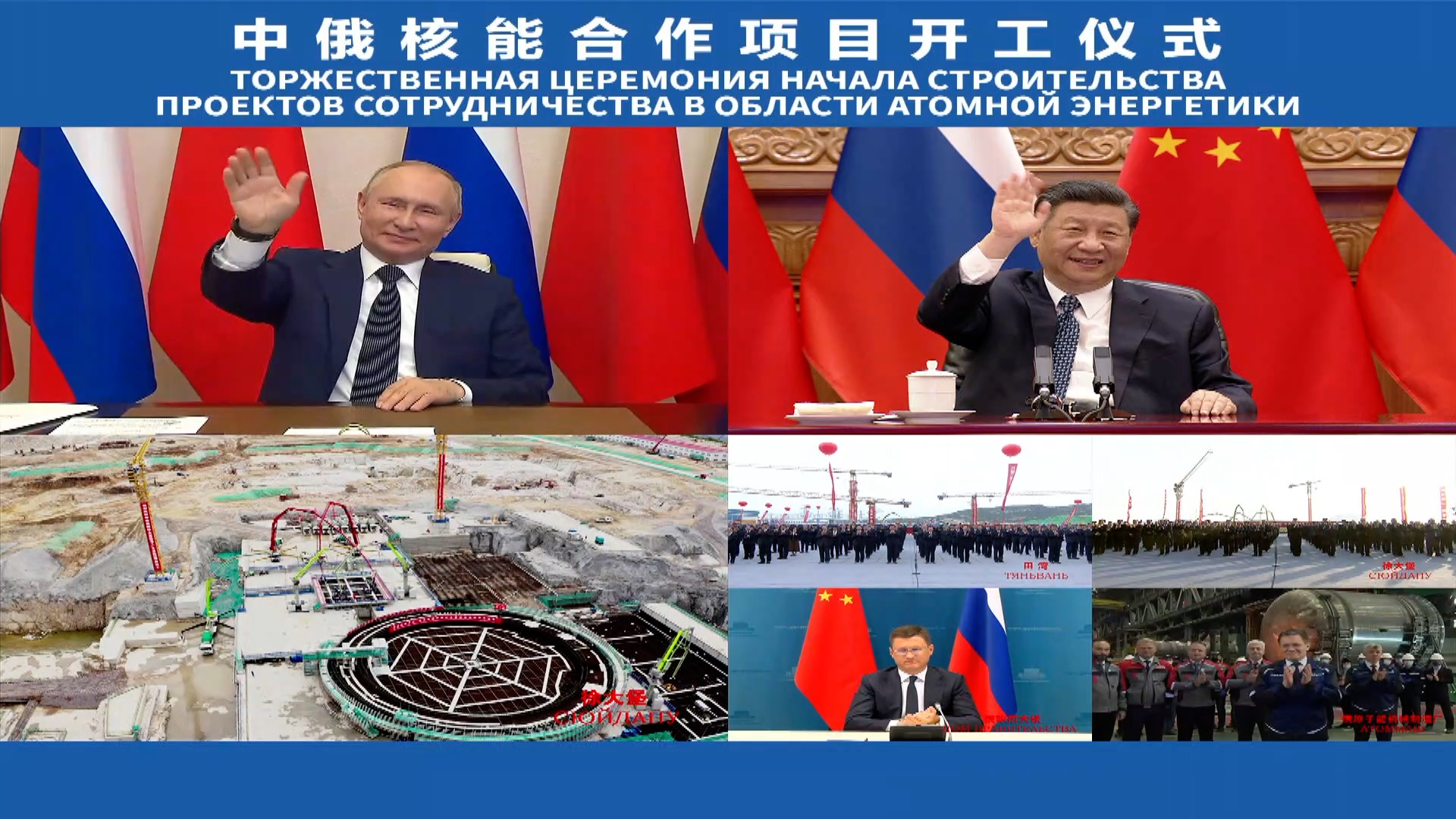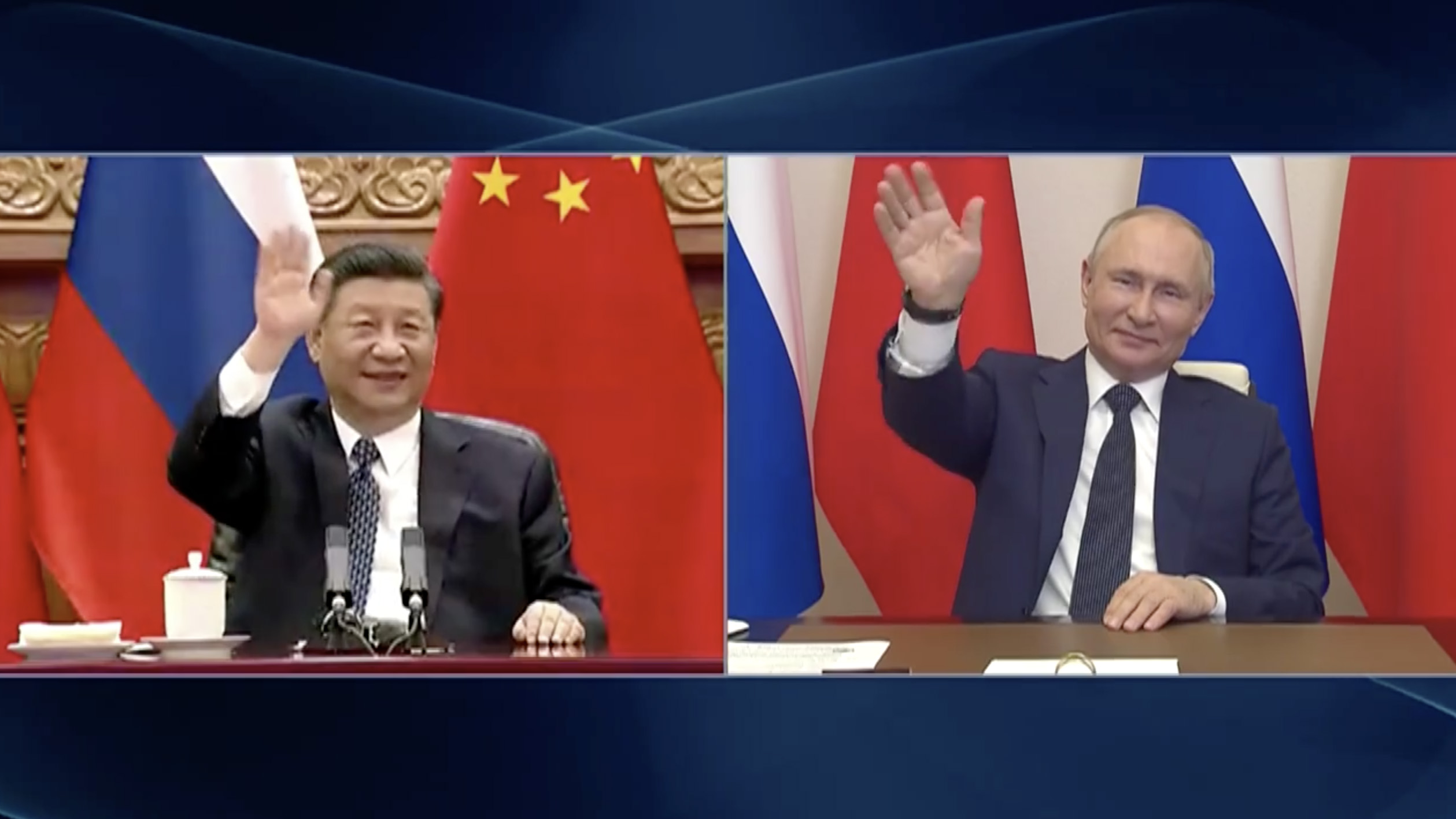02:00

Chinese President Xi Jinping and Russian President Vladimir Putin on Wednesday hailed nuclear energy cooperation between the two countries when attending a groundbreaking ceremony of the bilateral nuclear energy cooperation project via video link.
The ceremony was held to mark the first day of construction of power units No. 7 and 8 of the Tianwan Nuclear Power Plant, and No. 3 and 4 of the Xudapu Nuclear Power Plant.
Xi, in his speech, reiterated China's close attention to energy cooperation with Russia as it is a traditional cooperative area between the two countries.
Xi hailed the beginning of construction of the two nuclear power plants, and noted that the energy projects set an example for bilateral cooperation in other sectors.
Stressing that the bilateral cooperation on nuclear energy is meaningful for the high-level development of the China-Russia comprehensive strategic partnership of coordination for a new era, Xi said he hopes the two sides will follow the sound momentum and conduct more effective cooperation in other sectors.
The Chinese president also proposed three points of hope to the projects.
First, he highlighted the importance of safety and security during the construction, urging workers to always put safety atop the agenda and strive to set an example for global nuclear cooperation.
Second, innovation needs to become a driving force in such cooperation, said Xi, calling for greater integration of technology in nuclear energy cooperation.
Third, Xi said the two parties should remain committed to strategic coordination and work jointly to promote the development of international energy governance.
00:42

Putin congratulated the start of the construction of Tianwan and Xudapu Nuclear Power Plants. He said that Russia has the confidence to work with China to smoothly and safely advance the project's construction.
Noting that this year marks the 20th anniversary of the signing of the Treaty of Good-neighborliness and Friendly Cooperation between the two countries, Putin said Russia-China relations had reached their best level in history. He added that the consensus reached between President Xi and himself has been well implemented with increasingly broader cooperation areas.
He said cooperation on the peaceful use of nuclear energy marks a significant part of the comprehensive strategic partnership of coordination for a new era between the two countries, and it is believed that the start of the four nuclear power units will not only inject new vitality into the further development of Russia-China relations but also help achieve the goals to peak carbon dioxide emissions and achieve carbon neutrality.
It will also contribute to coping with global climate change and realizing the sustainable development of humanity, Putin added.
Witnessed by both Xi and Putin, China and Russia signed a strategic package of agreements on nuclear energy in June 2018 to jointly construct four nuclear power units, the biggest of such between the two countries so far, with a total contract value of over 20 billion yuan (about $3 billion).
As part of the agreement, both countries have agreed to construct four new units at two nuclear plants in China, namely units 7 and 8 of Tianwan Nuclear Power Plant in east China's Jiangsu Province, and units 3 and 4 of Xudapu Nuclear Power Plant in northeast China's Liaoning Province.
All the four units will adopt the third-generation VVER-1200 reactors developed by Russia. Compared to its precedent VVER-1000 reactor, the latest VVER-1200 reactor features advantages in many aspects, according to Russia's Rosatom State Nuclear Energy Corporation.
Once completed, the four units are expected to effectively reduce carbon dioxide emissions.

